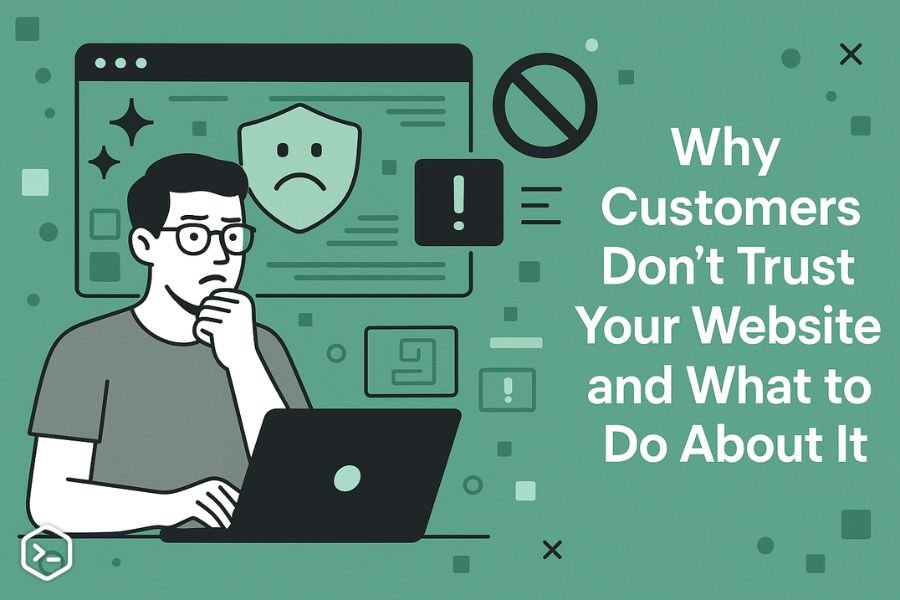Choosing the right eCommerce platform is one of the most important decisions when building an online store. Shopify and WooCommerce are two of the most popular platforms, and each has its unique advantages. If you’re thinking about launching your own online store, you may be wondering which one of these two platforms is the best choice for your business.
In this article, we’ll compare Shopify and WooCommerce based on various factors such as ease of use, features, pricing, customization, and support. By the end, you’ll have a clear understanding of which platform is the right fit for your online store.
What is Shopify?
Shopify is a cloud-based eCommerce platform that allows you to create an online store without needing to have any technical skills. It’s known for its simplicity, and it handles most of the technical aspects for you. Shopify is a subscription-based service, which means you pay a monthly fee depending on the plan you choose.
One of the key selling points of Shopify is its all-in-one approach. It provides hosting, security, and other essential features you need to run an online store. Shopify is great for those who want a hassle-free solution without worrying about the technical aspects.
What is WooCommerce?
WooCommerce is an open-source WordPress plugin designed to add eCommerce functionality to your WordPress site. It’s not a standalone platform like Shopify. Instead, WooCommerce is an extension that transforms your WordPress site into a fully functional online store.
WooCommerce is free to use, but you will need to pay for hosting, security, and other features, which are not included. Because WooCommerce is open-source, you have more control over the customization of your store, but it also requires a bit more technical knowledge.
Which Platform is Easier to Use: Shopify or WooCommerce?
When it comes to ease of use, Shopify stands out. Shopify is designed to be user-friendly and is perfect for beginners who have no coding experience. You don’t need to worry about things like hosting, security, or performance since Shopify takes care of that for you. Setting up a store on Shopify is as simple as signing up, choosing a theme, and adding your products. The platform guides you step-by-step through the process, making it easy to get started.
In contrast, WooCommerce is built on WordPress, so it may feel a bit more complicated, especially if you’re not familiar with WordPress. Although WooCommerce offers more flexibility and customization options, it can also be a bit overwhelming for those who are not familiar with the technical aspects of website management. You will need to handle your own hosting, security, and performance optimization.
Which Platform Offers Better Pricing: Shopify or WooCommerce?
Pricing is a crucial factor when choosing an eCommerce platform. Let’s break down the cost differences between Shopify and WooCommerce.
Shopify Pricing
Shopify has several pricing plans:
- Basic Shopify: $39/month
- Shopify: $105/month
- Advanced Shopify: $399/month
These prices include hosting, SSL certificates, and various built-in features. Shopify also charges transaction fees unless you use their own payment gateway (Shopify Payments). These fees range from 2.9% + 30¢ per transaction (for credit card payments) to 0.5% depending on the plan you choose.
WooCommerce Pricing
WooCommerce itself is free, but there are other costs involved. You’ll need to pay for:
- Web hosting: Plans start at around $3 to $10 per month.
- Domain name: Typically costs about $10 to $20 per year.
- SSL certificate: Can be free with your hosting or cost around $50 per year.
- Themes and plugins: Many themes and plugins are free, but for premium options, you may pay anywhere from $20 to $100+ annually.
While WooCommerce is technically free, you can end up spending more when factoring in hosting, plugins, and themes, especially if you need advanced functionality.
Verdict: If you’re on a tight budget, WooCommerce might be the better option. However, if you want an all-in-one, hassle-free solution, Shopify is worth the investment.
Which Platform Provides Better Customization: Shopify or WooCommerce?
WooCommerce takes the lead when it comes to customization. Since WooCommerce is built on top of WordPress, you have complete control over the design and functionality of your store. You can install plugins, change themes, and even modify the code itself if you have the technical know-how.
If you want to add custom features or build a truly unique store, WooCommerce gives you the flexibility to do so. Whether it’s custom checkout fields, advanced product options, or specific functionality for your niche, WooCommerce can be tailored to meet your exact needs.
In contrast, Shopify offers limited customization options compared to WooCommerce. While it provides a variety of themes and apps to enhance your store, you cannot modify the core Shopify code. If you want to make advanced customizations, you’ll need to hire a developer, and this can get expensive. Shopify is great for people who need a simple, professional-looking store, but if you’re looking for extensive customization, WooCommerce may be a better choice.
Which Platform is More Secure: Shopify or WooCommerce?
Security is always a concern when running an online store. Luckily, both Shopify and WooCommerce take security seriously, but there are some key differences in how they handle it.
Shopify Security
Shopify is known for being extremely secure. It comes with a free SSL certificate, which encrypts your data and keeps your customer’s information safe. Shopify is also PCI DSS compliant, which means it meets the standards required for handling credit card information. All updates and security patches are automatically applied by Shopify, so you don’t need to worry about keeping your site secure.
WooCommerce Security
With WooCommerce, security is your responsibility. While the plugin itself is secure, your hosting provider, themes, and other plugins can affect the overall security of your store. You will need to make sure that your website is properly secured by using an SSL certificate, keeping everything up to date, and installing security plugins like Wordfence.
Verdict: Shopify handles security for you, making it the more secure and convenient option for beginners. However, if you’re experienced with WordPress, WooCommerce gives you more control over your store’s security.
Which Platform Has Better Support: Shopify or WooCommerce?
Shopify has an excellent customer support system. They offer 24/7 support via live chat, email, and phone, so you can always get help when you need it. Shopify also has a large library of tutorials, guides, and video tutorials to help you troubleshoot common issues on your own.
On the other hand, WooCommerce does not offer direct customer support. Instead, you can rely on WordPress support forums, or you can hire developers or agencies for assistance. Since WooCommerce is open-source, there is also a large community of developers who contribute to forums and provide troubleshooting help.
Verdict: Shopify provides better support for beginners, especially if you need help quickly. WooCommerce is great for those who have more technical experience and can troubleshoot issues on their own or hire someone for assistance.
Which Platform is More Scalable: Shopify or WooCommerce?
Both platforms are scalable, but they handle growth in different ways.
Shopify Scalability
Shopify is designed to be easy to scale. If you start small and grow your business over time, Shopify can handle the increase in traffic, products, and sales. As your store grows, you can simply upgrade to a higher Shopify plan to access more features and capabilities.
WooCommerce Scalability
WooCommerce is also highly scalable, but scaling with WooCommerce requires a bit more work. As your business grows, you may need to upgrade your hosting plan, add more plugins, and optimize your store for better performance. WooCommerce gives you the flexibility to customize your store’s backend, which can be a benefit if you’re building a complex or unique store.
Verdict: Both platforms are scalable, but Shopify makes it easier to grow without worrying about technical issues.
Which Platform is Better for SEO: Shopify or WooCommerce?
When it comes to SEO, both Shopify and WooCommerce offer great features, but WooCommerce has the edge.
Shopify SEO
Shopify offers built-in SEO features like customizable title tags, meta descriptions, and alt text for images. It also includes a blog feature, which is great for content marketing. However, Shopify’s SEO flexibility is somewhat limited compared to WooCommerce. For example, Shopify doesn’t give you as much control over URLs, which may affect SEO.
WooCommerce SEO
WooCommerce gives you full control over your store’s SEO. Since WooCommerce is built on WordPress, you have access to a wide range of SEO plugins, such as Yoast SEO, which can help you optimize your product pages, blog posts, and overall site structure. You can easily adjust everything from meta tags to URL structures.
Verdict: WooCommerce offers more advanced SEO options, especially if you want to optimize your store for organic traffic in a more detailed way.
FAQ About Shopify vs WooCommerce
-
Which platform is easier to use: Shopify or WooCommerce?
Shopify is easier to use because it’s a fully hosted platform that handles most technical aspects for you. WooCommerce, on the other hand, requires more technical knowledge as you need to manage your hosting and security.
-
Which platform is cheaper: Shopify or WooCommerce?
WooCommerce is technically free, but you’ll still need to pay for hosting, themes, plugins, and security. Shopify charges a monthly subscription fee, but it includes hosting, SSL, and other built-in features. WooCommerce may be cheaper if you already have a WordPress site, but Shopify provides a more convenient all-in-one solution.
-
Which platform is more customizable: Shopify or WooCommerce?
WooCommerce is more customizable since it’s built on WordPress and is open-source. You can modify the code, install various plugins, and design your store exactly how you want it. Shopify offers fewer customization options but is still flexible with apps and themes.
-
Which platform is better for security: Shopify or WooCommerce?
Shopify is more secure out-of-the-box since it handles hosting, SSL certificates, and regular security updates. With WooCommerce, security is your responsibility, but you can take steps to secure your store through plugins and hosting.
-
Which platform offers better customer support: Shopify or WooCommerce?
Shopify offers 24/7 support through live chat, email, and phone. WooCommerce relies on community support and forums, with no direct customer service.
Both Shopify and WooCommerce are excellent eCommerce platforms with their strengths and weaknesses. Shopify is ideal for beginners who want a simple, hassle-free solution with all-in-one support. It’s perfect for those who don’t want to worry about hosting, security, or technical details. WooCommerce, on the other hand, is better for those who want full control over their online store and have some technical knowledge or resources to manage their site.
In the end, the platform you choose will depend on your business needs, budget, and technical expertise. Take the time to evaluate each option carefully and consider what will work best for you as you grow your online store.








2 Comments
I don’t think the title of your article matches the content lol. Just kidding, mainly because I had some doubts after reading the article. https://accounts.binance.com/pt-PT/register-person?ref=KDN7HDOR
Can you be more specific about the content of your article? After reading it, I still have some doubts. Hope you can help me. https://accounts.binance.com/es-MX/register-person?ref=GJY4VW8W